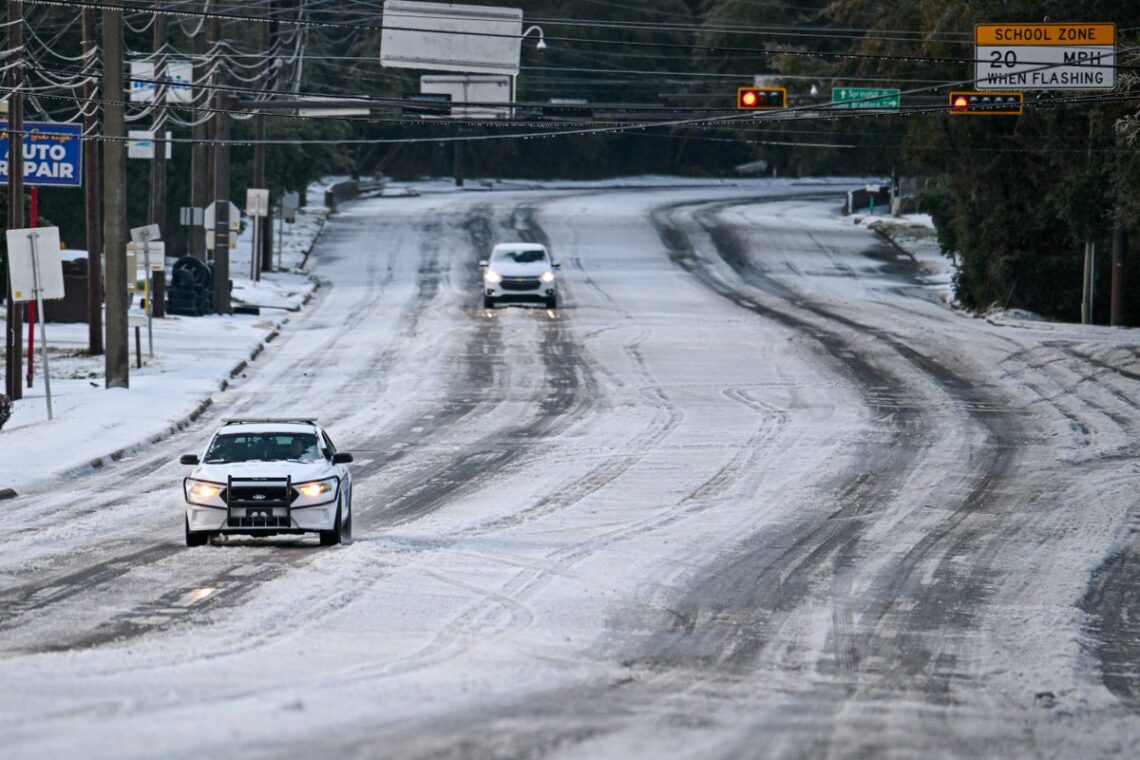January 22, 2025
2 min read
Here’s What Caused the Rare, Record Florida Snow
A perfect confluence of an Arctic air outbreak and a low-pressure system that pulled in moisture from the Gulf of Mexico brought rare, record snow to the Gulf Coast
Car drives on snow after snowfall on January 22, 2025, in Tallahassee, Fla.
Miguel J. Rodriguez Carrillo/Getty Images
In scenes more reminiscent of Milwaukee or Boston, Gulf Coast cities from New Orleans to Pensacola, Fla., found themselves blanketed under drifts of snow. Palm trees had powdered-sugar-like coatings on their fronds, and golden beach sands were dusted in white.
Louis Armstrong New Orleans International Airport “shattered” its previous snowfall record, with eight inches coming down on Tuesday, says Hannah Lisney, a meteorologist at the National Weather Service’s New Orleans/Baton Rouge office. The previous record, from December 31, 1963, was 2.7 inches. Likewise, Florida looks to have set a new state snowfall record, with 8.8 inches reported in the city of Milton in the state’s panhandle. The previous record of four inches was also set in Milton on March 6, 1954. Tuesday “was a wild day,” says Jason Beaman, a meteorologist at the NWS’s office in Mobile, Ala.
The rare southern snow was the product of a confluence of events that included cold Arctic air colliding with abundant ocean moisture, somewhat akin to a Gulf of Mexico version of what meteorologists call lake effect snow—a phenomenon that usually describes the notoriously bitter winter weather in the Great Lakes region.
On supporting science journalism
If you’re enjoying this article, consider supporting our award-winning journalism by subscribing. By purchasing a subscription you are helping to ensure the future of impactful stories about the discoveries and ideas shaping our world today.
The Gulf Coast frequently sees low-pressure systems spin up over the Gulf, push northward and skim along the coast,…
Read the full article here

